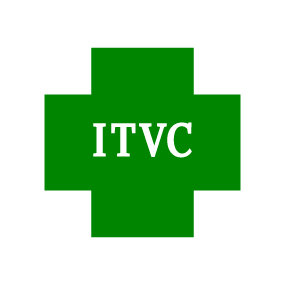Travel Health Checklist
To ensure your trip goes well and you come home in good health, we've put together a Travel Health Checklist for you.
THINGS TO DO BEFORE YOU LEAVE
Book your travel insurance. Travel Insurance should include cover for unforeseen events that might happen while you are overseas and medical evacuations.
Get a dental check-up before you leave. It can be quite difficult to get good, affordable dental care while you are travelling so make sure those pearly whites are good before you go.
Book an appointment to see a travel doctor at least 6-8 weeks before you leave. This will help you make sure you are well prepared for your destination and the travel doctor can give you destination specific advice regarding the health risks and vaccinations for you intended destination.
Purchase an appropriate travellers medical kit and remember to pack it. (Include anti-diarrhoea medication such as Lomotil, Fasign, Stemetil, Noroxin, Gastrolyte Senakot – from ITVC – in your travel kit.) Emergency Malaria treatment may be needed if medical advice is not available. Take some with you in your medical kit if you’re not taking Prophylaxis.
Register your contact details and travel plans with the Australian Department of Foreign Affairs and Trade (Smart Traveller) so they can contact you or your family in the even of an emergency (such as an earthquake).
Check for health alerts and warnings and other destination advice with Smart Traveller
See your doctor about prescription medications you need to take with you and to get a letter from your doctor with the list of medications you will be taking with you. Make sure you have enough of those medications and pack them in your carry-on luggage.
Take Malaria pills early to check for side effects and make sure you take them regularly as prescribed to ensure they are effective.
THINGS TO DO WHILE TRAVELLING
Avoid Mosquitoes and other biting insects
- Regularly apply repellent's containing DEET
- Sleep under treated bed-net or behind screens
- See our fact sheet on Avoiding being bitten by animals or insects
Do not go near or touch animals. Seek medical support for a post treatment rabies vaccine immediately if bitten, scratched or licked on an open wound.
- See our fact sheet on Avoiding being bitten by animals or insects
Take precautions when eating and drinking
- Eat safely – Cook it, peel it or leave it
- Avoid ice creams, especially from street vendors
- Drink bottled water or canned soft drinks. Avoid ice cubes.
- See our fact sheet on eating and drinking overseas
Practice good hygiene
- Don’t brush your teeth in tap water or dirty water
- Wash hands before eating and after going to the bathroom
Apply sunscreen and/or insect repellent regularly
Accidents kill more travellers than infectious diseases
- Respect local customs and laws
- Observe speed limits
- Wear seatbelts / helmets
- Avoid night driving
Practice safe sex. Always use a condom. HIV is still a major risk
Keep your shoes on when outside
Seek medical advice immediately if you develop a fever
THINGS TO DO WHEN YOU RETURN
Have a check up on return if you are sick in any way.


